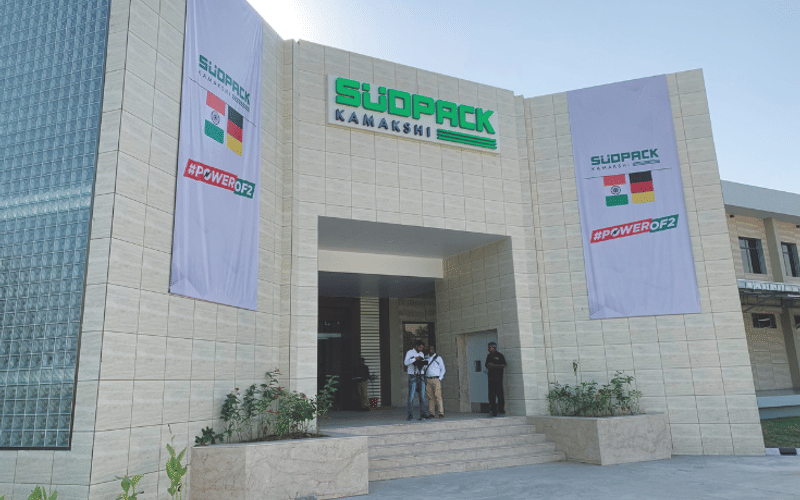EcoTrace by Sudpack enables data-driven life cycle assessments for flexible packaging in India
With its EcoTrace LCA service, SÜDPACK takes a holistic, data-driven approach to assessing the environmental impact of its products across the value chain. EcoTrace enables comparisons of different packaging concepts through various scenarios and projections, facilitating objective decisions on optimal packaging solutions, supporting ambitious environmental goals, and enhancing product reporting based on reliable LCA data.
15 Oct 2024 | By Disha Chakraborty
According to a study by WWF Germany, eliminating unnecessary packaging and implementing improved designs could reduce plastic waste volume by approximately 8%. Additionally, up to 365 kilotons, or 9%, of all single-use plastics could be substituted with materials that have a lower ecological footprint. Furthermore, phasing out multipolymer materials could enhance closed-loop mechanical recycling yields by 185 kilotons, or roughly 30%.
“By incorporating chemical recycling as a viable recovery option, the potential environmental benefits increase significantly, as carbon is retained in the material loop indefinitely,” stated Carolin Grimbacher, managing partner at Sudpack.
Relevant impact categories and insights
EcoTrace enables Sudpack to analyse the entire life cycle of its products and customer concepts in terms of environmental impact. These assessments follow a cradle-to-grave approach, considering not only greenhouse gas emissions (CO2e) but also factors such as fossil resource consumption, eco- and human toxicity, various energy sources, and end-of-life options within defined system limits. This approach is crucial, as approximately 10% of the environmental impact of Sudpack's flexible films occurs at the end of their life cycle, based on an average recycling rate of 48% and a thermal recovery rate of 52%.
In collaboration with Sphera, Sudpack recently conducted a life cycle assessment (LCA) study in accordance with ISO 14040/44 for its Flow Pack PurePP solution, evaluating the potential environmental impact of these innovative high-performance films from the Pure-Line range. These flexible film laminates, primarily used for flow packs in the food sector, are made from polypropylene (PP) and feature a mono-material structure, yielding a recyclability rate of 92% according to the cyclos-HTP institute.
For the end-of-life analysis, a current German recycling mix served as the baseline scenario, which was compared with analyses of 100% mechanical recycling, 100% chemical recycling, and 100% thermal recovery. The study also examined the impact of different energy sources utilised in production and the incorporation of recycled content into the granules.
Another advantage of EcoTrace™ is that the results of these studies can inform fact-based product development and optimisation based on various sustainability criteria, and can be shared with customers as needed. EcoTrace™ facilitates the rapid integration of these datasets into the customer’s LCA for experts software.
Summary of the LCA study results
In the baseline scenario, 1 m² of Flow Pack PurePP generates 246 g CO₂e/m² over its entire life cycle. As expected, incinerating the Flow Pack at the end of its life results in the highest emissions, at 293 g CO₂e/m², while mechanical recycling reduces this by approximately 50 g CO₂e/m².
Therefore, by using mechanical or chemical recycling as an alternative to thermal recovery, the ecological footprint is significantly improved. Even with chemical recycling, the difference compared to thermal recovery is around 50 g CO₂e/m². If renewable electricity is used, CO2e emissions are reduced even further – by more than 5%. Moreover, mechanical recyclate performs better than chemically recycled input materials, as the latter require more energy during production.
Overall, the results show that significant environmental impacts occur throughout the life cycle of Flow Pack PurePP, highlighting the need for fact-based assessments to make informed decisions on sustainability criteria.


